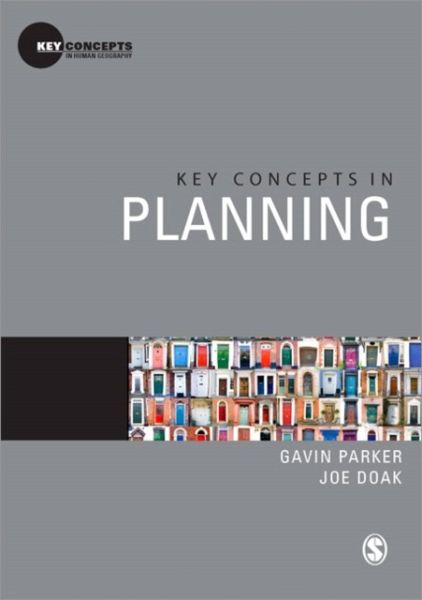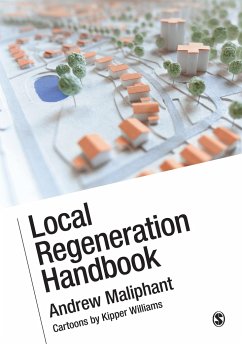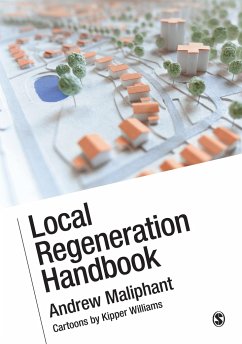
Key Concepts in Planning
Versandkostenfrei!
Versandfertig in 6-10 Tagen
35,99 €
inkl. MwSt.
Weitere Ausgaben:

PAYBACK Punkte
18 °P sammeln!
"I have been looking for a book which does this for ages! It provides a clear explanation of the different elements and concepts which underpin how the planning system works and which are fundamental to the operation of the UK system. It also provides good guidance on further reading. A real assett to anyone wanting to understand the nature of planning in the UK"- Dr Catherine Hammond, Architecture and Planning, Sheffield Hallam UniversityKey Concepts in Planning forms part of an innovative set of companion texts for the human geography sub-disciplines. Organized around 19 short essays, the bo...
"I have been looking for a book which does this for ages! It provides a clear explanation of the different elements and concepts which underpin how the planning system works and which are fundamental to the operation of the UK system. It also provides good guidance on further reading. A real assett to anyone wanting to understand the nature of planning in the UK"
- Dr Catherine Hammond, Architecture and Planning, Sheffield Hallam University
Key Concepts in Planning forms part of an innovative set of companion texts for the human geography sub-disciplines. Organized around 19 short essays, the book provides a cutting edge introduction to the central concepts that define contemporary research in planning. Involving detailed and expansive discussions, the text includes:
An introductory chapter providing a succinct overview of the recent developments in the field. 18 key concept entries with comprehensive explanations, definitions and evolutions of the subject. Detailed suggested further reading for each concept discussed.
It is an ideal companion text for upper-level undergraduate and postgraduate students in planning, and covers the expected staples of the discipline in an accessible style.
- Dr Catherine Hammond, Architecture and Planning, Sheffield Hallam University
Key Concepts in Planning forms part of an innovative set of companion texts for the human geography sub-disciplines. Organized around 19 short essays, the book provides a cutting edge introduction to the central concepts that define contemporary research in planning. Involving detailed and expansive discussions, the text includes:
An introductory chapter providing a succinct overview of the recent developments in the field. 18 key concept entries with comprehensive explanations, definitions and evolutions of the subject. Detailed suggested further reading for each concept discussed.
It is an ideal companion text for upper-level undergraduate and postgraduate students in planning, and covers the expected staples of the discipline in an accessible style.














